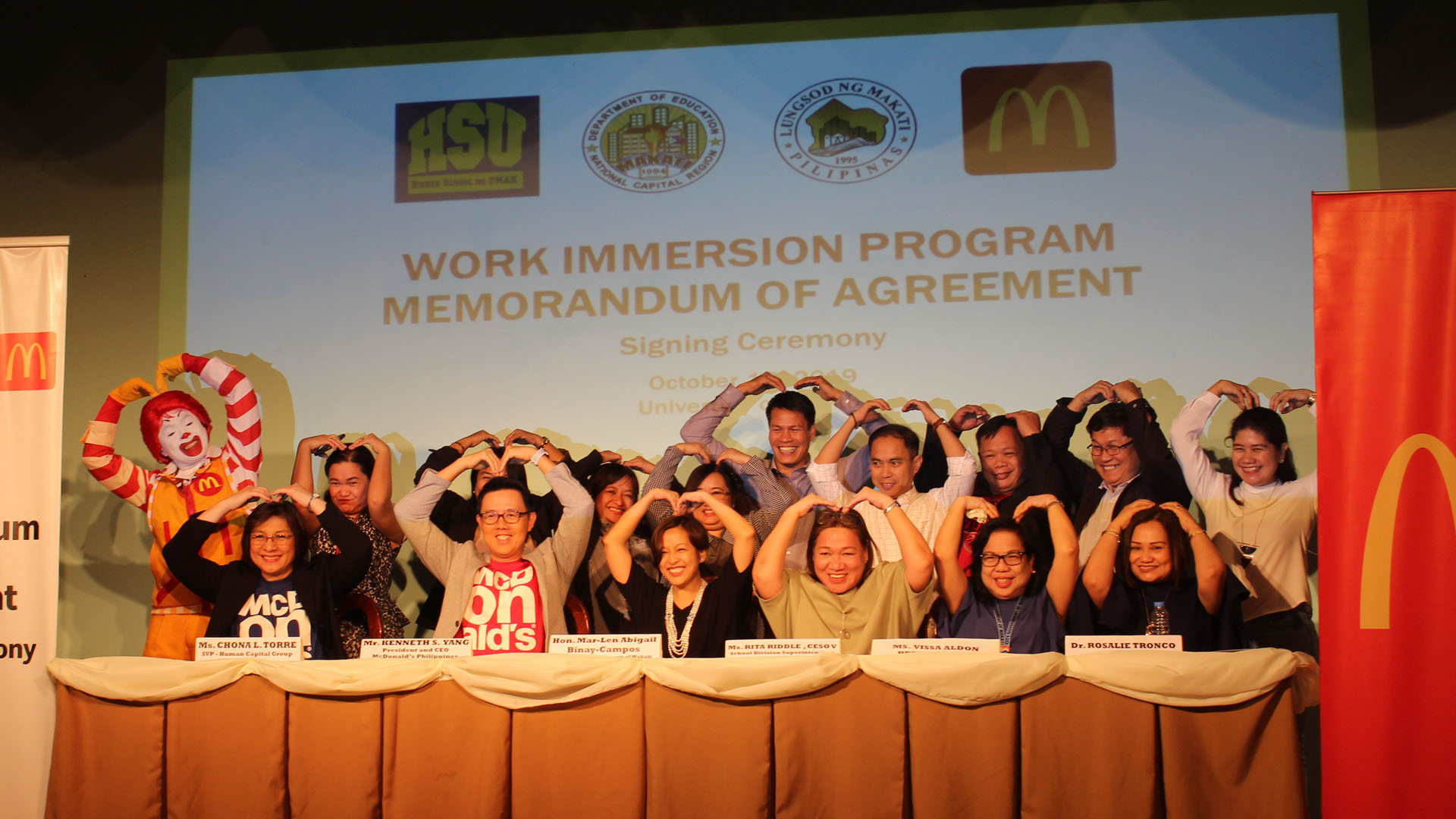In a bid to strengthen its commitment to support the learning and development of the youth, Golden Arches Development Corporation (McDonald’s Philippines) signs a partnership with the City Government of Makati and with the Department of Education (DepEd) through the Schools Division Office of Makati City to help prepare senior high school students in the city for employment through the Work Immersion Program (WIP).
Recognizing the potential of every student to contribute to society and to the growth of organizations, McDonald’s Philippines inks a memorandum of agreement with Makati Mayor Abby Binay and with the Department of Education through the Schools Division Office of Makati. Through the agreement, McDonald’s commits to train over 500 Senior High School (Grade 12) students from seven participating schools, namely: University of Makati, Fort Bonifacio High School, Pitogo High School, Nemesio Yabut High School, Maximo Estrella High School, Benigno Aquino High School, and Makati High School. The students will be assigned across the 23 McDonald’s stores in Makati City, and in the company’s head office to learn more about restaurant operations and gain firsthand experience and knowledge in the industry.
 “McDonald’s champions in youth employability and is committed to provide young Filipinos equal employment opportunities. Through this partnership, we aim to immerse students in a natural working environment where they can develop values, knowledge and basic competency skills that will be helpful in their future careers,” says Chona Torre, SVP for Human Capital Group of McDonald’s Philippines.
“McDonald’s champions in youth employability and is committed to provide young Filipinos equal employment opportunities. Through this partnership, we aim to immerse students in a natural working environment where they can develop values, knowledge and basic competency skills that will be helpful in their future careers,” says Chona Torre, SVP for Human Capital Group of McDonald’s Philippines.
Under the agreement, students need to fulfill the 80-hour requirement by DepEd as a prerequisite for graduation. Students under the academic track will be exposed to corporate tasks in human resources, IT, and Finance; while students under the technical vocational livelihood track with sub-specializations in cookery, bread and pastries, and food and beverage will be exposed in restaurant operations.
 “We are excited to elevate the caliber of learning through these training opportunities that not only aim to improve the technical skills of students but impart the values of hard work and responsibility as well,” Torre added.
“We are excited to elevate the caliber of learning through these training opportunities that not only aim to improve the technical skills of students but impart the values of hard work and responsibility as well,” Torre added.
McDonald’s remains steadfast in its commitment to being the partner of the government in the development of young learners by equipping them with life-long skills and work experience that enable them to support their studies and progress in their chosen careers.
“As we partner with more government units and communities, McDonald’s hopes to provide growth and learning opportunities to more Filipinos nationwide,” Torre closes.
 Following the company’s recent partnership with Mandaluyong City for WIP, Manila City and Pasig City for persons with disability (PWD) and senior citizens (SC) employment, McDonald’s is aggressive in sealing more partnerships with different cities to roll out employment opportunities for more Filipinos.
Following the company’s recent partnership with Mandaluyong City for WIP, Manila City and Pasig City for persons with disability (PWD) and senior citizens (SC) employment, McDonald’s is aggressive in sealing more partnerships with different cities to roll out employment opportunities for more Filipinos.
Since its establishment in the Philippines in 1981, McDonald’s advocates for equal employment and have practiced direct hiring policy or the non-practice of contractualization for all its restaurant employees.







